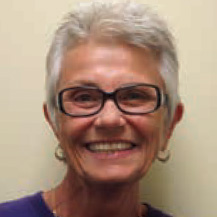How Planned Giving Makes an Impact
by Blog Writers
 Jane, an Easterseals supporter, hadn’t updated her will in 15 years. She told the Easterseals Planned Giving team that her intention was to include a bequest to benefit Easterseals.
Jane, an Easterseals supporter, hadn’t updated her will in 15 years. She told the Easterseals Planned Giving team that her intention was to include a bequest to benefit Easterseals.
As they talked, Jane learned there’s an Easterseals center just two miles from her home. Retired after teaching special education for 35 years, she was looking to volunteer in the community.
Easterseals’ Planned Giving team connected her, and it’s been a perfect fit ever since. “I felt like I was family from the day I walked in the door,” she said.
In the summer, Jane helps with the Easterseals camp program, and during the school year, she volunteers in the early intervention program. “I so believe in early intervention,” she said. “I wish every child in the world had access to it.”
Planning giving involves making charitable donations as part of an individual’s overall financial and estate plan, usually through planned gifts such as bequests in a will, charitable remainder trusts, or charitable gift annuities.
“It feels so good to finally have everything in place,” explains Jane. “Including Easterseals in my plans was the right thing to do. My life is wonderful, and being at Easterseals fills me with joy.”
Some things are difficult to talk about, or even think about. What happens to your estate once you pass on is something many of us want to ignore for as long as possible. But making plans to update your will now can create a legacy, supporting causes or organizations like Easterseals that are important to you. That is what planned giving is all about.
Setting up a will and managing planned giving can sound complicated or overwhelming, but we’ve provided information below to dispel misconceptions and offer definitions to guide your plans.
Common Terms in Planned Giving
Estate Plan – Your plan for how and where you want your assets (money, belongings, home, etc.) to be distributed and managed after you’re gone.
Bequest – A bequest is a gift made as part of your estate plan that can be given to a person, trust, or organization. Bequests can be a fixed amount of money or specific property, such as real estate, stocks, bonds, or art. They can be used to support causes (like Easterseals) that are important to you and your family.
Charitable Remainder Trust – A Charitable Remainder Trust or CRT is a gift of cash or other assets that generates income for the donor or other beneficiaries, while the remaining assets are given to charities.

Charitable Gift Annuity – A Charitable Gift Annuity or CGA is a contract between a donor and a charity that provides the donor with a fixed-income stream for life in exchange for a sizeable gift to the charity (minimum $10,000).
Executor – The person named in your will to settle your estate once you’re gone
Trustee – The person named in a trust to manage trust investments for your beneficiaries
Charitable bequest – A charitable gift left by will or living trust
Charitable remainder trust – A trust that gives your chosen beneficiaries income for life or a term of years, with the remaining balance going to charitable organizations you designate, like Easterseals.
Common Myths
Myth: Planned gifts are complicated and confusing.
Truth: There are many types of planned gifts—most are simple and affordable, like a gift in your will or trust. You just need to find the one that best fulfills your goals.
Myth: My estate has to be large to make an impact.
Truth: By including charities like Easterseals in your estate plan for any amount, you make a lasting impact and a tremendous difference. One option is to leave a residual amount.
Myth: I’m too young to think about making a will.
Truth: Planning your estate is an important step at any stage of your life. A simple meeting with an attorney or financial advisor can help you ensure that your intentions are carried out.
Myth: Charitable giving’s main benefit is to reduce your tax burden.
Truth: Different assets can have significantly different tax implications on your estate. Your advisor can be a valuable partner for you in determining your strategy. But, more important, giving can be the start of many good things.
If you would like more information, we invite you to visit the Easterseals Charitable Giving website which provides free resources to plan and create your will.






